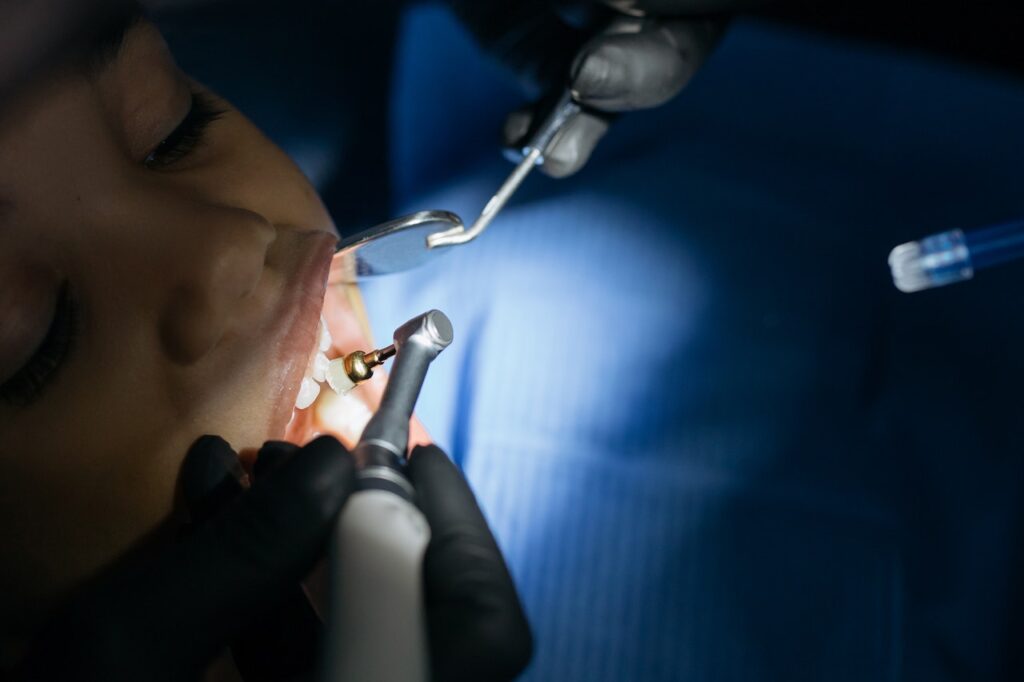Dental anxiety and behavior management are important issues when providing dental care to children.
Many children experience fear and anxiety when visiting the dentist, which can lead to uncooperative behavior and make dental treatments more difficult.
This can ultimately affect their oral health, as well as their overall well-being.
This article will explore the causes of dental anxiety and behavior management issues in children and provide strategies for managing these concerns.
Causes of Dental Anxiety and Behavior Management Issues in Children

Many factors can contribute to dental anxiety and behavior management issues in children. Some common causes include:
- Previous negative dental experiences
- Lack of understanding of dental procedures
- Fear of pain or discomfort
- Limited parental or caregiver support
According to the American Academy of Pediatric Dentistry, approximately 20% of children experience dental anxiety.
This can range from mild anxiety to severe phobia, and it can be especially challenging for children with special needs or developmental disabilities.
Furthermore, dental anxiety can significantly impact a child’s overall well-being, as it can lead to poor oral health and general health problems.
Strategies for Managing Dental Anxiety and Behavior Management Issues in Children

Communication and Education
Several strategies can be used to manage children’s dental anxiety and behavior management issues. These include:
Effective communication and education can help children understand the dental procedures they will undergo and reduce their fear and anxiety.
Dentists and dental staff should use age-appropriate language and visual aids to explain the procedures and what to expect.
It is also important to involve parents and caregivers, as they can provide support and reinforcement at home.
Positive Reinforcement
Positive reinforcement is an effective way to encourage cooperative behavior in children.
Dentists and dental staff should provide praise, stickers, or small toys to children who cooperate during their visit. This can help to build trust and make children more comfortable in the dental office.
Nitrous Oxide Sedation
Nitrous oxide sedation, also known as “laughing gas,” is a safe and effective way to reduce anxiety in children.
It is administered through a small mask that the child breathes through during the procedure. Nitrous oxide sedation can help children relax and feel more comfortable without general anesthesia.
Behavior Management Techniques
Dentists and dental staff should be trained in behavior management techniques to help children feel more comfortable and cooperative during their visits.
These techniques include distraction techniques, such as playing music or videos, and positive reinforcement.
Additionally, dental staff should be aware of the child’s individual needs and be willing to adjust their approach as needed.
Also read How to Teach Children Proper Oral Hygiene Habits?
Conclusion
Dental anxiety and behavior management are important issues when providing dental care to children. By understanding the causes of these issues and using effective strategies to manage them, dentists and dental staff can help children feel more comfortable and cooperative during their visits.
This can ultimately improve the child’s oral health and overall well-being.
Additionally, involving parents and caregivers in the process and providing them with the necessary information and support can help alleviate dental anxiety and behavior management issues in children.
In summary, children’s dental anxiety and behavior management issues can be caused by various factors such as previous negative dental experiences, lack of understanding about dental procedures, fear of pain or discomfort, and limited parental or caregiver support.
To manage these issues, dentists and dental staff can use communication and education, positive reinforcement, nitrous oxide sedation, and behavior management techniques.
Furthermore, involving parents and caregivers in the process and providing them with the necessary information and support can also help to alleviate dental anxiety and behavior management issues in children.
5 FAQs
- Why is dental anxiety a concern for children?
Dental anxiety can have a significant impact on a child’s overall well-being, as it can lead to poor oral health and general health problems. - What are some strategies to manage dental anxiety and behavior management issues in children?
Some strategies include communication, education, positive reinforcement, nitrous oxide sedation, and behavior management techniques. - How can parents and caregivers help alleviate children’s dental anxiety and behavior management issues?
Involving parents and caregivers in the process and providing them with the necessary information and support can also help to alleviate dental anxiety and behavior management issues in children. - What are some of the techniques that dental staff can use to encourage cooperative behavior in children?
Techniques include distraction techniques, such as playing music or videos, and positive reinforcement.
